
A combination of electronic cigarettes with nicotine and counseling delivered a two-fold greater success rate of smoking cessation than lone smoking cessation counseling, according to new findings from a multi-site trial in Canada.
In new data presented virtually at the ACC.20 Together with Word Congress of Cardiology (ACC/WCC) Scientific Sessions, investigators from the Jewish General Hospital in Quebec showed that cessation plans including either nicotine or non-nicotine e-cigarettes plus counseling were associated with significantly greater likelihood of user combustible cigarette cessation than just smoking cessation counseling over 12 weeks.
The trial, presented by lead author Mark J. Eisenberg, MD, MPH, a cardiologist at Jewish General and professor of Medicine at McGill University, show the benefit of vaping products in circumstantial, short-term attempts to quit smoking.
“Vaping with counseling is more effective than counseling alone, although it’s not a magic bullet for smoking cessation,” Eisenberg said in a statement.
Eisenberg and colleagues conducted their multicenter, randomized controlled trial to evaluate the potential benefit of e-cigarettes in smoking cessation efforts across a general population. They randomized 376 patients to either nicotine e-cigarettes, non-nicotine e-cigarettes, or neither. All patients additionally received cessation counseling—approximate 100 minutes of guidance on methods and steps to cessation, per participant.
Mean participant age was 53 years, with a majority (53%) being male. The population had smoked for a mean of 36 years, and averaged 21 cigarettes per day at baseline. Nearly all (91%) of patients had previously attempted to quit, and four-fifths (80%) previously used a pharmacologic or behavioral therapy in an attempt to quit.
Investigators assessed for a primary endpoint of smoking abstinence at 12 weeks, defined as seven-day recall and biochemical validation using expired carbon monoxide ≤10 ppm. The endpoint had been changed from 52 weeks following early termination—having reached 77% of the target enrollment—due to a prolonged delay in e-cigarette device manufacturing.
The conditions of the trial, Eisenberg and colleagues noted, were designed to reflect real-world scenarios of lifelong combustible cigarette smokers attempting to quit.
Participant progress was reported via 3 phone calls and 2 clinical visits during the 12-week period, and participants were subjected to carbon monoxide breath tests. Investigators also sought to observe a reduction in daily cigarette use among participants who failed to quit within 12 weeks.
At trial’s end, 21.9% of participants on nicotine e-cigarettes plus counseling reported cessation, versus just 9.1% of participants receiving lone counseling (RR, 2.41; 95% CI, 1.25-4.62). Another 16.5% of participants receiving non-nicotine e-cigarettes reported cessation at 12 weeks.
In smokers unable to quit at 12 weeks, a daily cigarette reduction of ≥50% was reported in 43% of all nicotine e-cigarette users, 35.4% of all non-nicotine e-cigarette users, and 24.8% of counseled smokers (RR, 1.73; 95% CI, 1.20-2.51).
Investigators confirmed participants receiving nicotine e-cigarettes plus counseling were nearly twice as likely to reach cessation or ≥50% combustible cigarette reduction (64.8%) than lone counseling participants (33.9%).
“While these are not clinical outcomes like death or lung cancer rates, the results are still quite impressive,” Eisenberg said.
Serious adverse events were limited among each group (0.7% nicotine; 3.1% non-nicotine; 1.7% counseling) and just 1 nicotine e-cigarette user reported a chronic obstructive pulmonary disease (COPD) exacerbation. Investigators reported no cases of e-cigarette or vaping product use associated lung injury (EVALI).
Though the data were highly promising to the role of e-cigarettes in cessation strategies, they only tell half the tale; the trial came to fruition in response to the increase reported rate of both e-cigarette and vaping product use, and associated lung disease cases. Eisenberg reiterated that clinicians should limit access to such products among people actively attempting to achieve cessation under clinical guidance.
“We desperately need information on whether e-cigarettes are effective for smoking cessation, but [we] also [need] safety data, as well,” he explained.
As the research duration was hindered by manufacturing issues, Eisenberg and colleagues intend to continue data collection for 1 year, with a final follow-up planned for September.
The study, “A Randomized Controlled Trial Evaluating The Efficacy And Safety Of E-Cigarettes For Smoking Cessation,” was published online in JAMA.
Vapesourcing Opinion:
If you’re ready to quit smoking, whether the first time or many times, vaping might be a good attempt.
High-quality vape, we recommend voopoo vinci, vaporesso gen s kit













































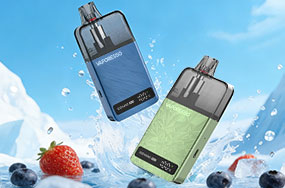










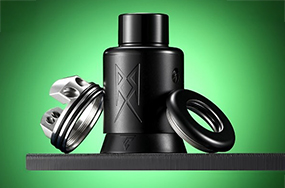








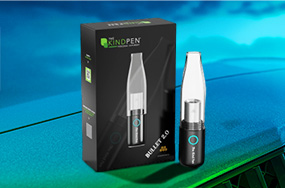
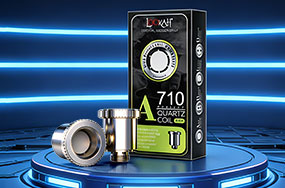
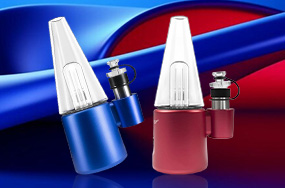






comments